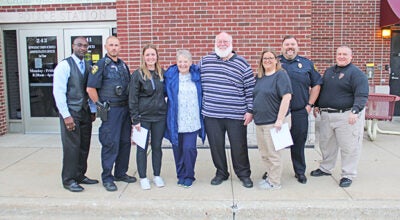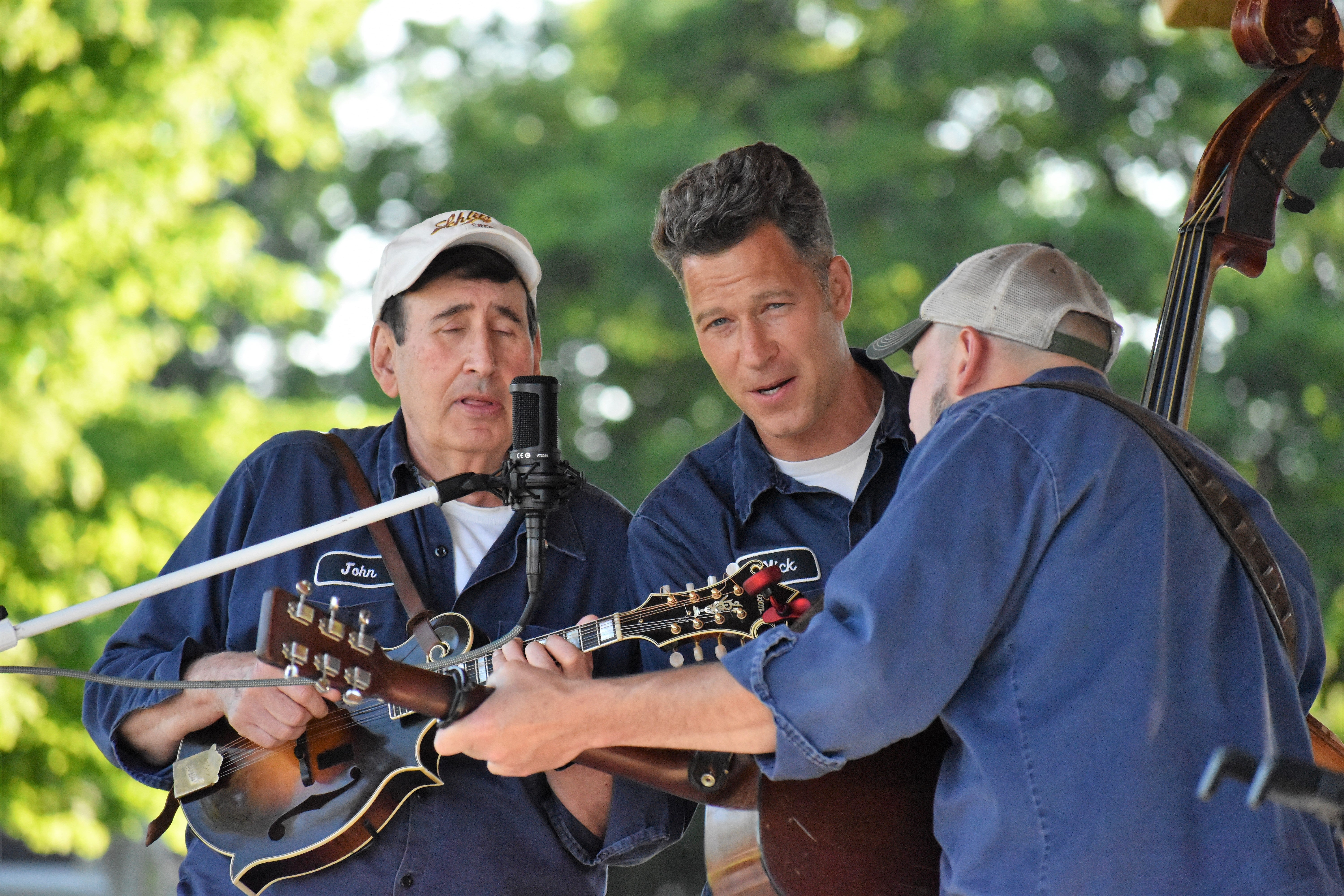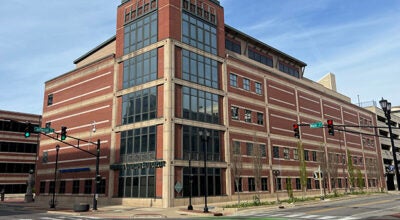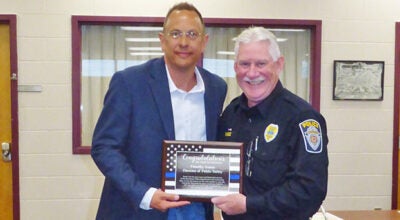Daily Star looks back on budding potential for medical marijuana operations
Published 8:00 am Friday, December 29, 2017
A year marked with triumph and tragedy, of new beginnings and fond farewells, of unity and conflict, 2017 was littered with unforgettable moments in the history of Niles and Buchanan.
Before we flip the calendar to yet another New Year, our newsroom has taken a look back at the seminal events of the past 12 months, as we have counted down the top 10 stories of the year, as determined by our staff.
Our countdown concludes with our top story of 2017:
1. Marijuana takes Niles, Buchanan by storm.
Hours of research, debate and discussion finally culminated one night in March, as residents packed the Niles Fire Station Complex, waiting with baited breath to see whether or not Niles City council would opt in to Michigan’s medical marijuana facilities licensing act, allowing industry operators to potentially open shop within city limits.
The evening’s meeting had been preceded by multiple public forums and debate giving council members plenty of time to make a decision on the topic. Within mere minutes of reading the proposed agenda item, they voted 7-1 in favor of medical marijuana on Monday, March 27. For residents who advocated for the ordinance to pass, the evening felt like a victory, while others remained in a haze — fearful of the unknowns, including gray areas in the state’s laws.
Regardless of personal stance on the topic, the vote was just the tip of the iceberg. Over the course of the year, more research and debate was conducted on the contentious topic, not just in Niles, but Buchanan and the surrounding municipalities.
That same night, in Buchanan, commissioners voted 4-1 in favor of the medical marijuana licensing act. Councilwoman Carla Cole addressed the audience that evening and said she was shocked and saddened by those who expressed their opposition to medical marijuana throughout the process, in the form of threatening emails, letters and voice mails to members of the Buchanan Commission.
How it all started
While medical marijuana use was legalized in 2008, it was not until September 2016 when Gov. Rick Snyder enacted a packet of bills, Public Acts 281 to 283, which would allow for the opening of medical marijuana drug dispensaries and large-scale grow operations. Municipalities were given a choice to opt in to the medical marijuana licensing act, permitting municipalities to allow medical marijuana business in the form of grower, processor, provisioning center, secure transporter and safety compliance facility.
During an ordinance committee in January, Niles city council members agreed that before they voted on opting in or out of the ordinance, they needed community feedback.
As a result, two medical marijuana forums and an educational presentation on the statute took place. During the first meeting in February, hundreds packed the Niles Fire Station complex expressing their support. A second public forum followed in March, which saw more divide on the topic.
Buchanan commissioners also shared this view and invited members of their community to speak out during two public forums before a vote on the issue.
Those who addressed Niles city council members during either meeting shared a variety of reasons why they were for or against opting in to a medical marijuana ordinance. Some said that they wanted medical marijuana available because they knew of people who were sick and ailing. Banning medical marijuana business operation from the city would mean patients would have to travel far distances to have access to the drug, they said.
Niles resident Stefanie Bennett was among those to address the crowd, during the city’s second public forum. Bennett said her son, Bailey, was diagnosed with brain cancer and used medical marijuana edibles and oils to manage his pain before his death.
Others cited the proposed tax benefits and how they could contribute to the city’s wealth, while adding more jobs.
On the opposite side of the argument, those opposed said they feared that medical marijuana would harm the city’s image and send a bad message to youth. Niles resident Jim Clark told council members during the second public forum that a member of his extended family used medical marijuana and progressed to harder drugs before she overdosed.
Still others said they were concerned about security and the potential that people could rob or loot the proposed medical marijuana businesses.
In Buchanan, residents shared similar feedback during two public forums, including support for medical marijuana heard by a U.S. military veteran and opponents who created the rallying cry “Not in my neighborhood,” which was born from a Buchanan resident Johnny Wallace’s early request to put a dispensary on Red Bud Trail.
In addition to public forums, Niles and Buchanan city leaders worked in tandem with the planning and zoning commissions to determine the safest places for the businesses to set up shop.
On that fateful March night, many city leaders who cast their vote said they were doing so in line with their constituents’ needs, and not their own personal beliefs about the drug.
Reflecting on the process throughout 2017, City Administrator Ric Huff said he was proud to see Niles residents working with their city representatives.
“It was good to hear from so many people on the subject through the well-attended public forums, emails, phone calls, and in person,” Huff said via email Thursday. “The process was very time consuming for the City’s staff and was complicated by the state waiting until the last minute to issue any rules or guidelines to help the City through the process.”
Uncertainties raise concerns
Other city leaders were also upset by the state’s lack of progress on creating definitive guidelines. In Niles Township, the potential for laws to change or be re-formulated was a building factor in their decision to vote to unanimously opt out of allowing the operation of medical marijuana facilities within township limits. The decision was made during a meeting in December.
With rumors that some of the initial guidelines could change, Trustee Herschel Hoese cautioned trustees about opting into the law at this time. Trustees agreed and said that they felt that they did not yet know what they were opting into.
In November, Milton Township also decided to opt out, voting 3-2 to overturn their earlier ruling to opt-in to an ordinance that would have allowed growers and processors to operate in the township. The change was initiated when Sheriff Richard Behnke and Cass County Prosecutor Victor Fitz contacted township leaders and presented them with information about the topic, including an informational pamphlet called “Don’t Be Fooled Again,” detailing the potential dangers of medical marijuana.
In response, trustees organized a public forum to get feedback from the public. Eleven people spoke and all were in favor of forbidding medical marijuana activity.
Both townships said they would be open to voting on the issue again.
Looking ahead
On Dec. 11, Niles city council members cast another significant vote that progressed the future of medical marijuana operations in Niles. Council members voted 5-4, with Mayor Nick Shelton casting the tie breaking vote in favor of approving four companies for provisional licenses for operating in the city of Niles.
The companies included:
• MJM Holdings, Grow Class C license, processor license and a provisioning license
• MediCann, Grow Class C license, a processor license
• MichiCann, Grow Class A license
• Oasis Wellness 1, a provisioning license
The first three businesses listed here have applied to operate in the industrial park area, while Oasis Wellness has asked to do business along the Niles commercial district.
If these businesses are able to receive approval from the state, the process for which began Dec. 15, they will next need to obtain a special land use approval and in some situations site plan approval by the Planning Commission, according to Huff. Following that, medical marijuana business operators will need to receive permits for electrical, plumbing, mechanical and occupancy depending on how much work needs to be completed on their proposed location, Huff said. Finally, they will need to respond to the city with any documents needed to approve a local license to operate their facility.
If businesses complete their necessary requirements, Huff said he expects that they can open as early as June 2018.. When they open shop, Huff said he expects them to provide something to residents that was not initially available.
“I hope patients in need of quality marijuana products will have reasonable access to quality products,” Huff said.






